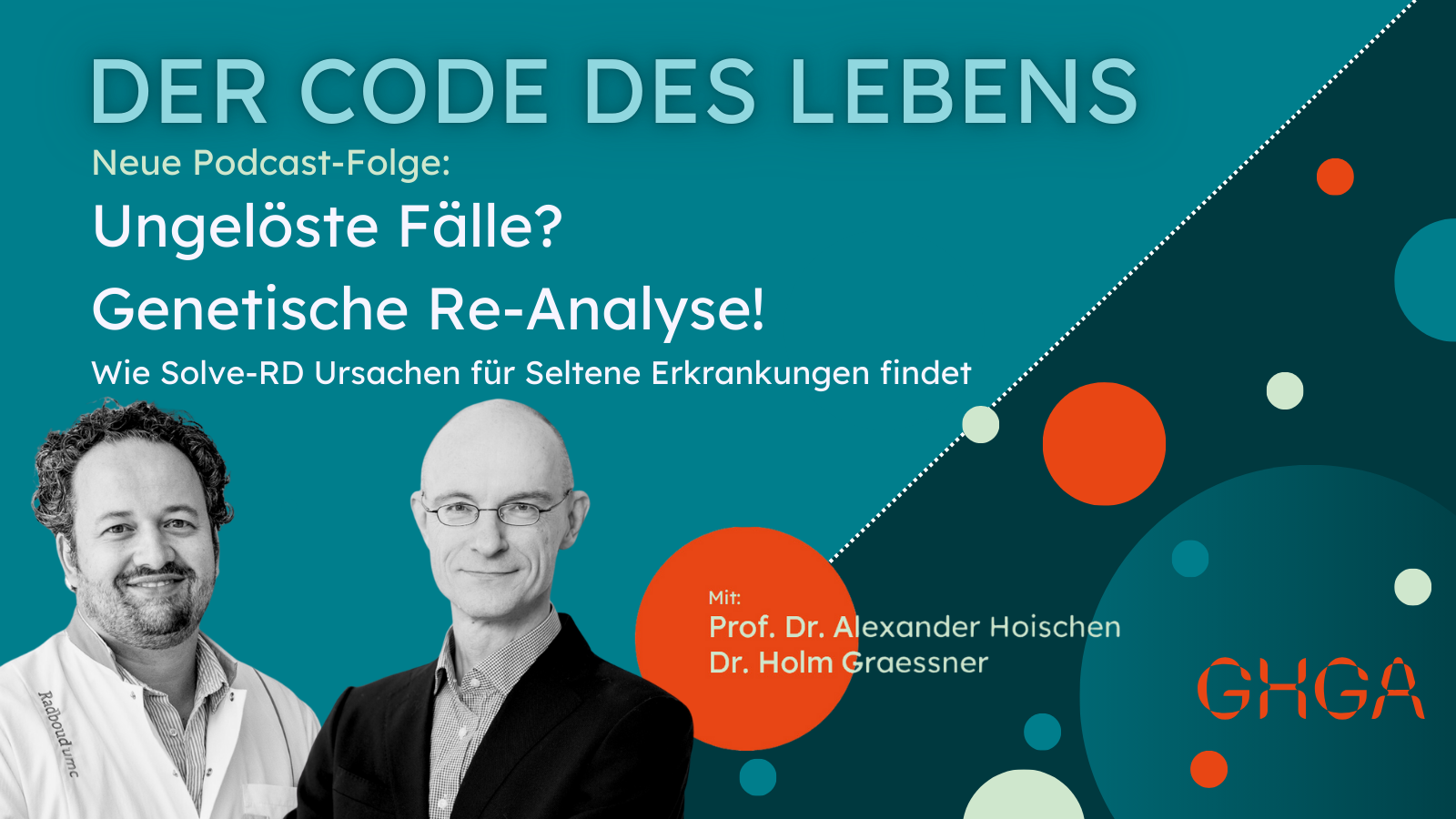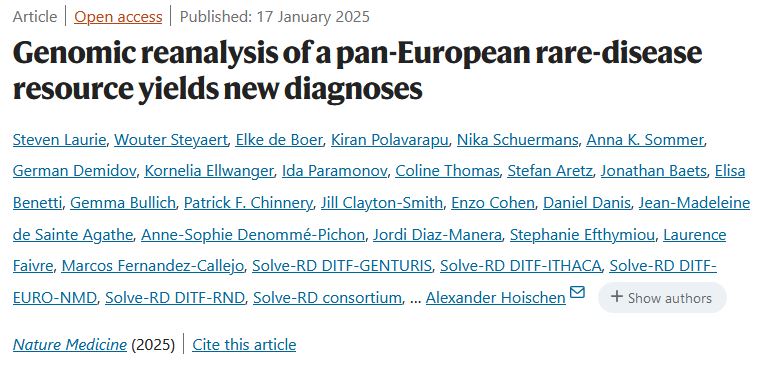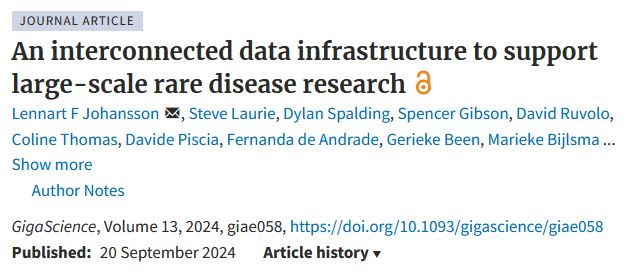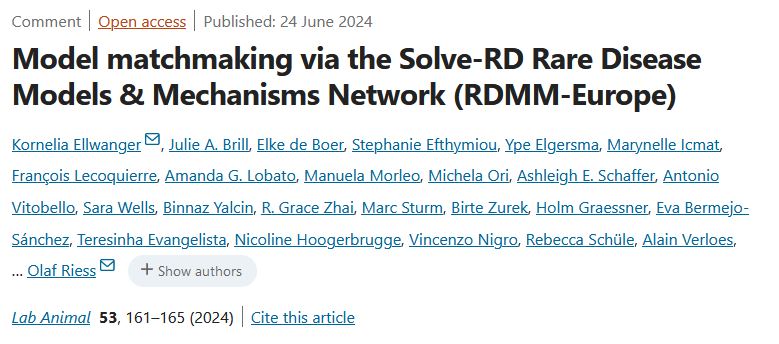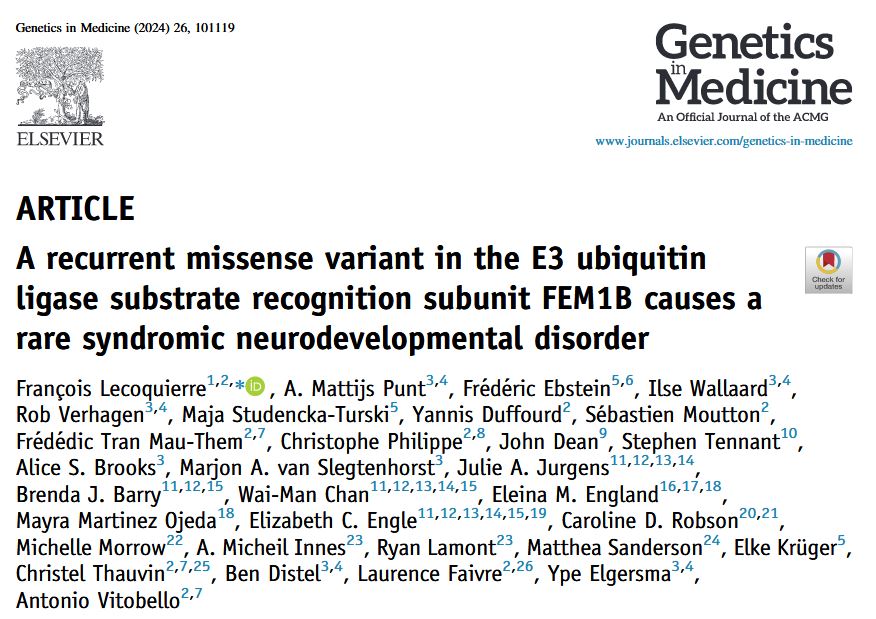New Podcast Episode: Unsolved Cases? Genetic Re-Analysis! How Solve-RD Finds the Causes of Rare Diseases
Solve-RD is featured in the latest episode of "Der Code des Lebens" by GHGA. In this episode, Dr. Holm Graessner and Prof. Dr. Alexander Hoischen discuss the challenges involved in diagnosing rare diseases, the role of Solve-RD’s genetic re-analysis approach in identifying previously undiagnosed conditions and the importance of international collaboration in addressing these complex cases.
Please note: The podcast is in German.
Listen to the full episode: https://codedeslebens.podigee.io/37-genetische-re-analyse
"Der Code des Lebens" is a podcast covering various topics in genome research. A new episode is released on the first Tuesday of each month. The podcast is aimed at anyone with an interest in science.
GHGA, the German Human Genome-Phenome Archive, provides a secure infrastructure for storing and accessing human genome data for biomedical research. The consortium includes 21 institutions across Germany and is funded by the German Research Foundation (DFG) as part of the National Research Data Infrastructure (NFDI).

